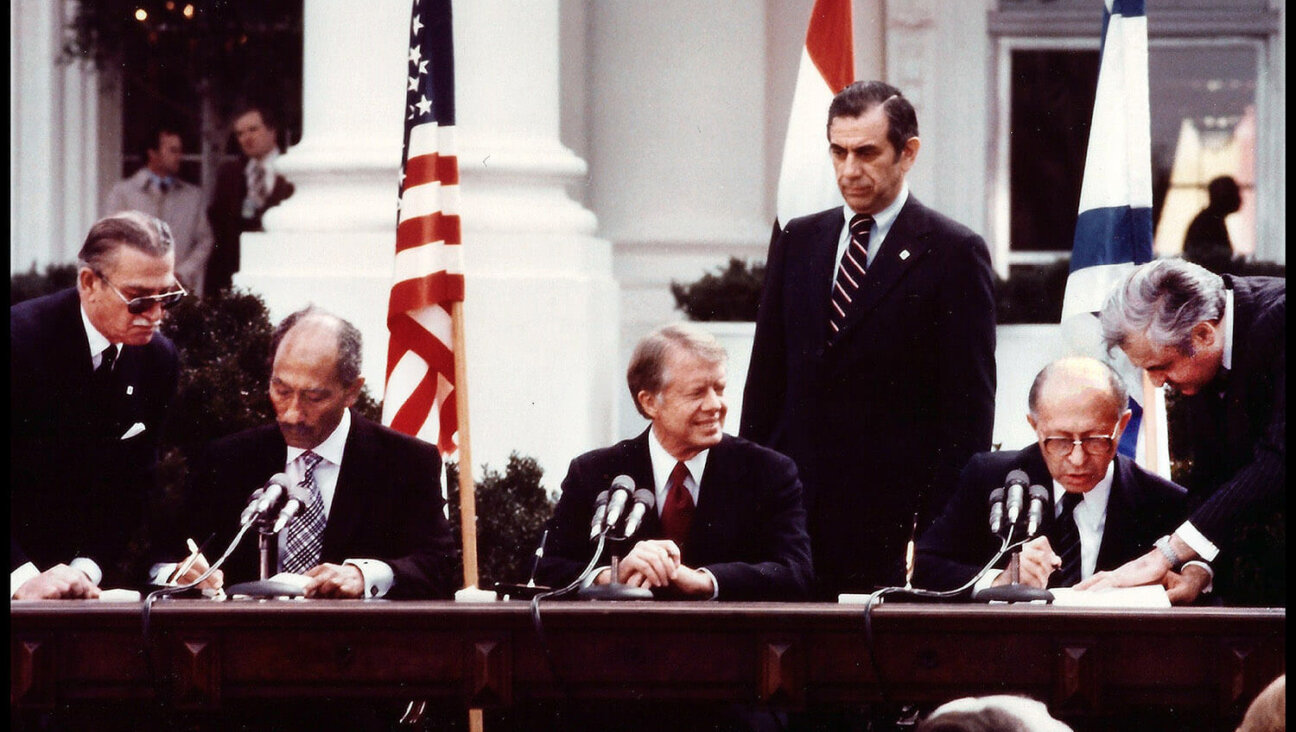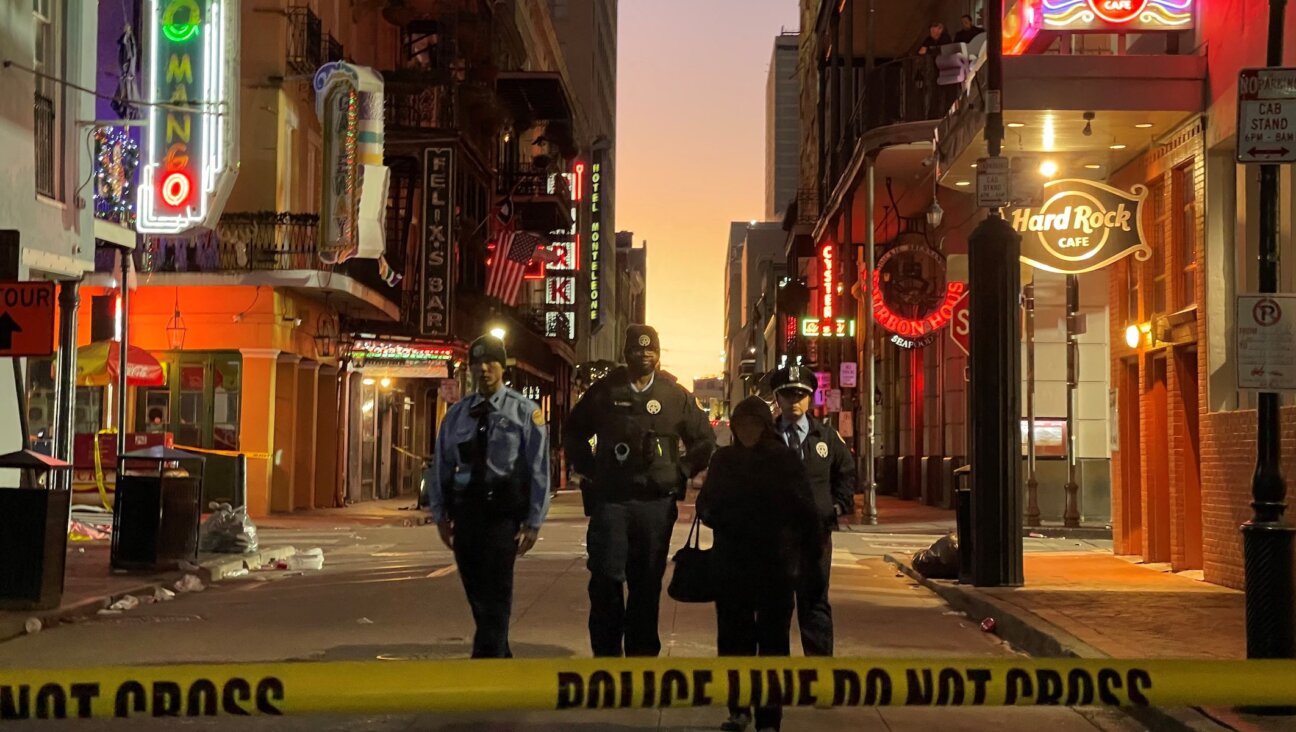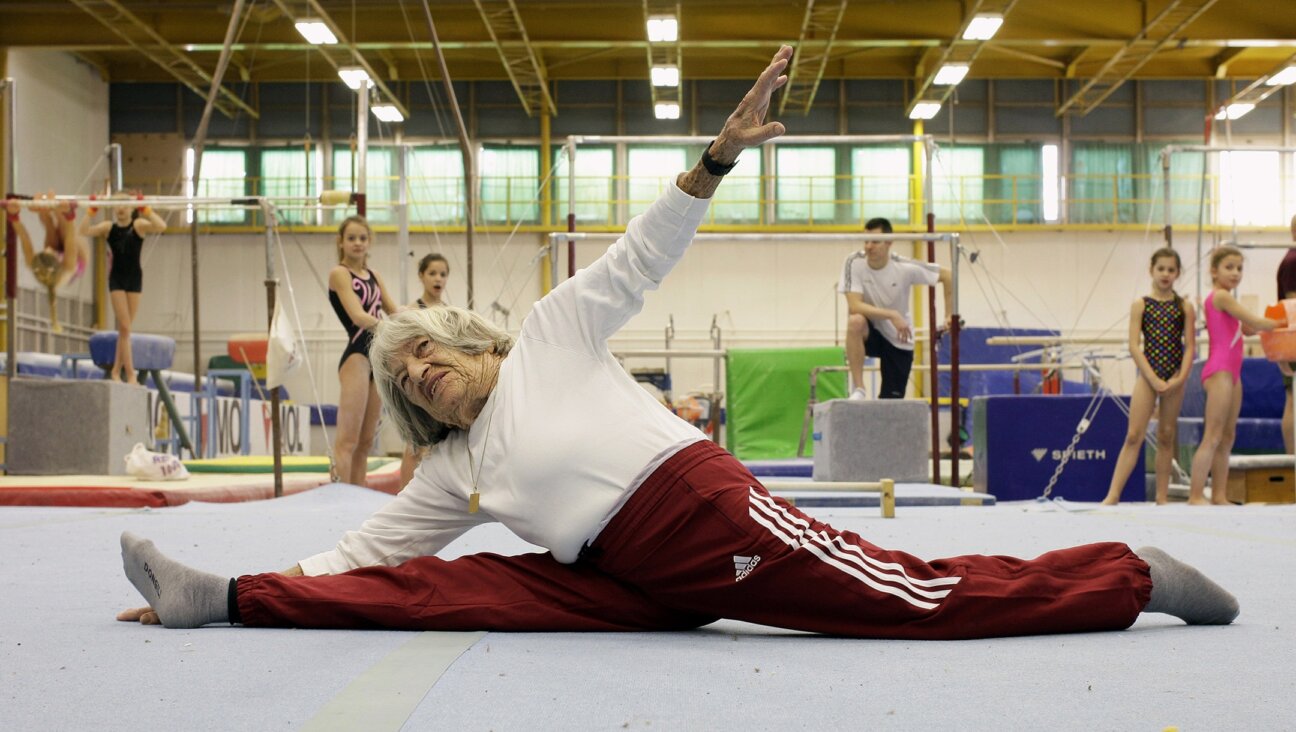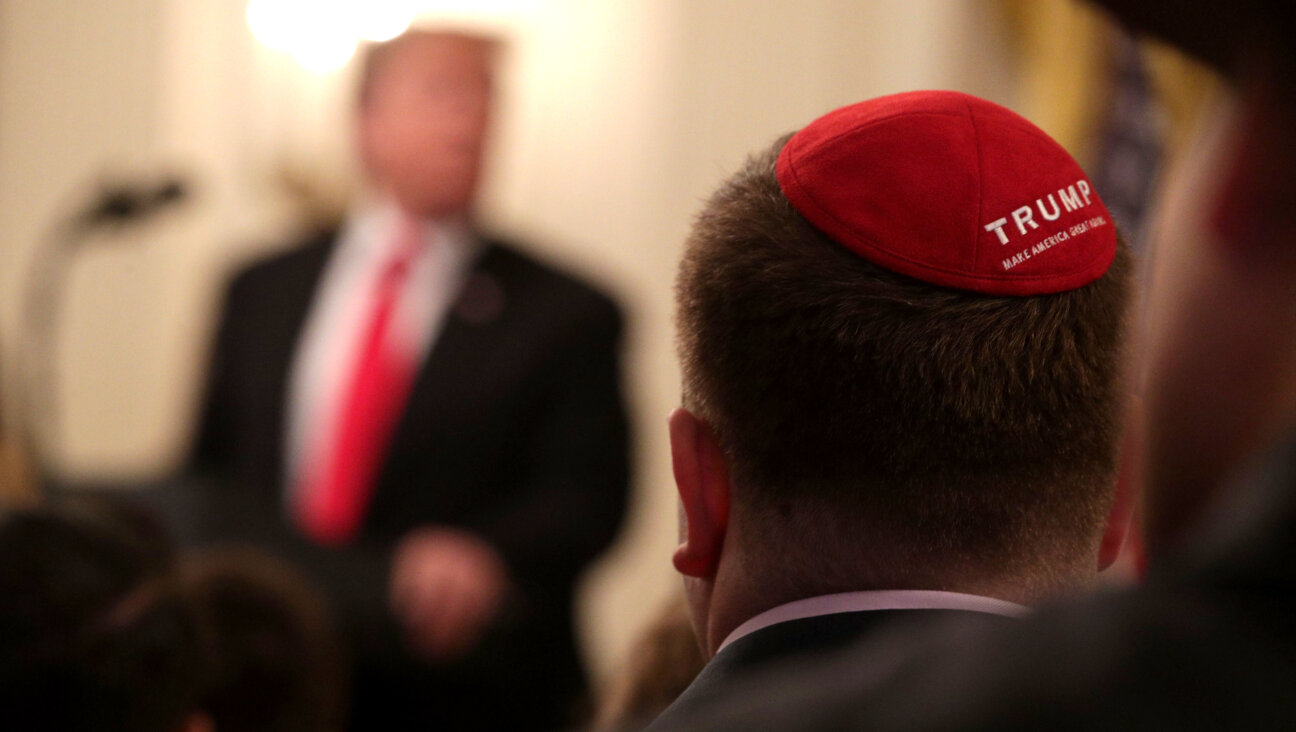Arab-Jew Duo Perform a ‘Prayer’ for Peace on Piano
On January 5, two Palestinian homicide bombers blew themselves up in Tel Aviv, killing 22 and maiming more than 100. Two days later, on January 7 at Steinway Hall in Manhattan, Charlotte White’s Salon De Virtuosi presented the “Palestinian-Israeli Two Piano Team” of Saleem Aboud Ashkar and Shai Wosner in a program titled “Middle Eastern Harmony.” Calling the event “a symphonic prayer for peace,” salon founder and director White introduced Marjorie Tiven, New York City commissioner for United Nations Consular Corps and Protocol and Mayor Mike Bloomberg’s sister, who touted the multicultural profile of New York and expressed hope “for peace through music.”
Ashkar and Wosner were born in 1976 — one in Nazareth, the other in Tel Aviv. Wosner is a student of Emanuel Ax at Juilliard and the 1995 winner at the Arthur Rubinstein Competition in Tel Aviv, and Ashkar studied at the Royal Academy of Music in London. Both are recipients of the America-Israel Cultural Foundation Scholarships and have appeared with major orchestras in Israel and Europe. They began their collaboration in 1999 in Weimar, Germany, at the first concert of the East Divan Workshop initiated by maestro Daniel Barenboim and cellist Yo Yo Ma.
The program opened with cellist Jesus Castro Balbi, a Peruvian raised in France, accompanied by his wife, pianist Gloria Lin, performing “Prayer,” the first of Ernst Bloch’s three-part work “Jewish Life.” Wosner and Ashkar then launched into the Brahms “Variation on a Theme by Haydn” — an avalanche of brooding wrenching exposition followed by Mozart’s hopeful and upbeat Sonata in D Major for Two Pianos. Their exuberant rendition of Ravel’s “La Valse” with its frenzied escalation and feel-good explosive resolution concluded the virtuoso program.
Among the overflow audience enjoying the concert and delicious Middle Eastern buffet supper that followed were opera diva Patrice Munsel; salon board member Rachel Oestreicher Bernheim, who is chairwoman of the Raoul Wallenberg Committee of the United States; salon patron Rosalind Devon, who is also a board member of the American Society for Jewish Music, and AICF president Vera Stern.
* * *|
In need of a year-end pick-me-up, I decided to say “hello” to “Say Goodnight Gracie: The Life, Laughter and Love of George Burns” at the Helen Hayes Theatre. Written by Rupert Holmes and directed by John Tillinger, Burns is astonishingly portrayed by “clone” Frank Gorshin, whose credits include the Riddler in the 1960s TV series “Batman.” In a 90-minute journey, Gorshin as Burns argues with God in Tevye-ish style in the hope of escaping purgatory and entering heaven. As he recounts his life from vaudeville through his prophetic partnering with Gracie Allen, projected photographs and vintage film clips bring to life the duo’s top-rated radio series “The Burns and Allen Show” (1950-1958) and their equally top-rated 1950’s TV spinoff.
Though the multigenerational, mostly out-of-town audience relished the monologue’s Jewish allusions, in the Playbill there is no mention of Burns’ birth name, Nathan Birnbaum, nor his roots on the Lower East Side, where at age 7 he became the family’s breadwinner. In 1991, I literally got on my knees to chat with the then 95-year-old George Burns, who was holding court at a G.P. Putnam book party at the Four Seasons. He was there to tout his book, “Wisdom of the ’90s.” Cigar in hand, he told me, “When I was born on Pitt Street,” the ninth of 12 children, “I was much younger than I am today…. And, I want you to know, my father always read the Forward.” Burns died on March 9, 1996, at age 100. “Say Goodnight Gracie” is a show not to miss!
* * *|
From my mailbag of year-end greetings: A recap of his recent trip to New Zealand from Down Under Rabbi John Levi, director of the Australian-New Zealand Union for Progressive Judaism. “A visit to Dunedin in the deep South, a little congregation founded in the 1860s…. A faithful remnant keeps the shul going. Christchurch has a small 80-member synagogue which (for obvious reasons) takes its name from the Province called Canterbury…. At the congregation’s annual general meeting it elected a board which is committed to inclusive community with membership open to people with a Jewish parent and a Jewish commitment. Quite a revolution in fact. Hundreds of people in the region registered that they were Jewish two years ago when the government took a census, yet only 80 are members and only two or three turn up on Shabbat morning.”
“In Wellington, the capital,” he continued, “there are 1,200 Jews (there are 7,000 in all of New Zealand) and two synagogues: Reform and orthodox.” When I asked if any of the original settlers had been convicts as in Australia, Levi responded: “They were adventurers of the South Seas, traders. Many came in the 1870s for the Gold Rush in the South Island when the Dunedin congregation came into being. New Zealand was the first country in the British Empire (and world) to have a Jewish prime minister [1873-1875]. His name was Sir Julius Vogel, the founder of New Zealand’s first newspaper.”
A message from our Publisher & CEO Rachel Fishman Feddersen

I hope you appreciated this article. Before you go, I’d like to ask you to please support the Forward’s award-winning, nonprofit journalism so that we can be prepared for whatever news 2025 brings.
At a time when other newsrooms are closing or cutting back, the Forward has removed its paywall and invested additional resources to report on the ground from Israel and around the U.S. on the impact of the war, rising antisemitism and polarized discourse.
Readers like you make it all possible. Support our work by becoming a Forward Member and connect with our journalism and your community.
— Rachel Fishman Feddersen, Publisher and CEO






















